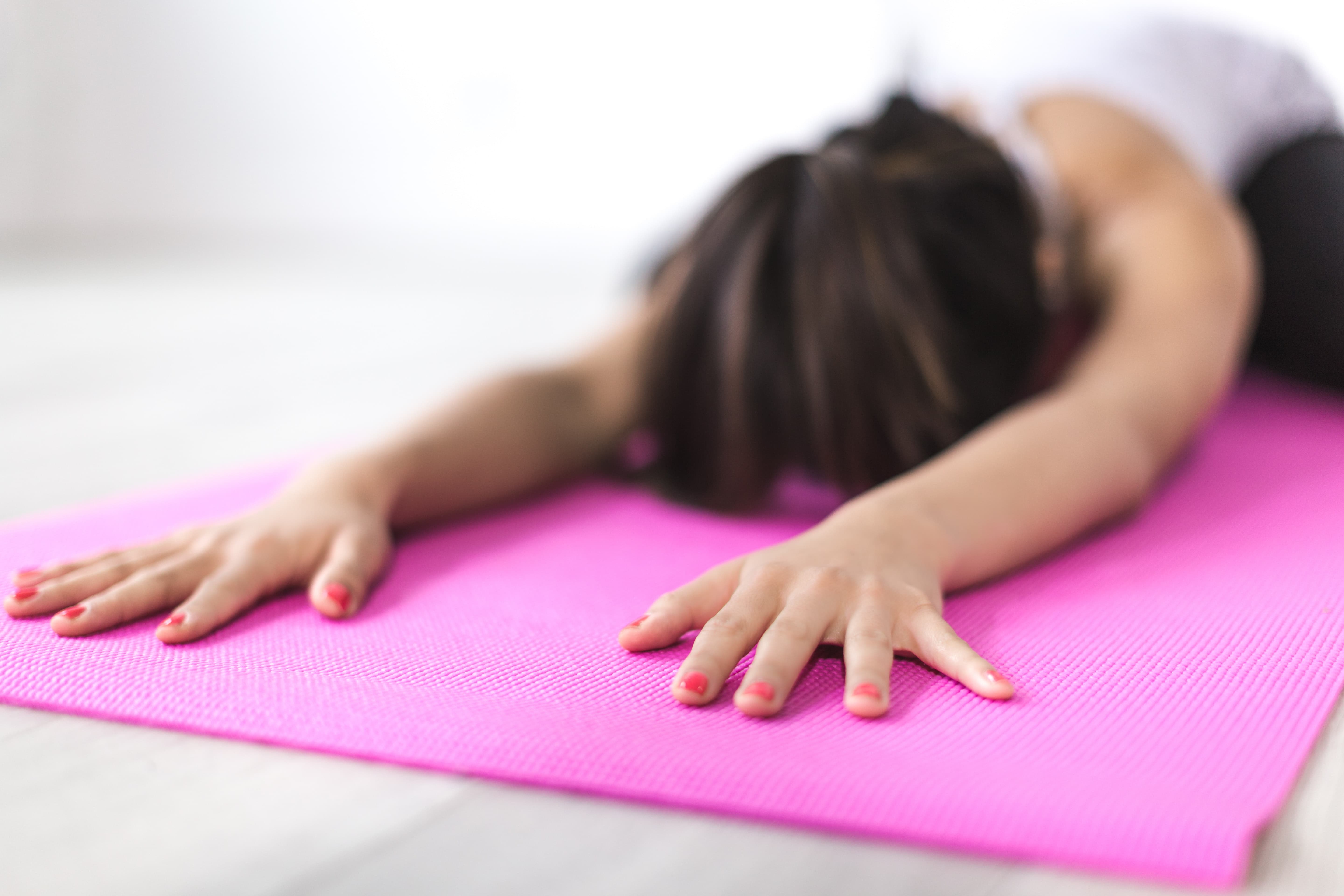
As a fitness professional and yoga instructor for more than a decade, I have received tons of feedback from yoga practitioners.
More often than I can count, I have heard students and members express the following:
“I can’t do yoga because I am not flexible.”
“I tried yoga, and I liked it, but I couldn’t do the poses like others in the room.”
Or, “yoga is too challenging.”
Most often, I hear this from beginner yoga students. However, I also get this feedback from people who cycle in and out of yoga classes: not quite a beginner, but not quite committed to a consistent yoga practice
In both situations, the common limitation is mindset. One that has adopted myths and unrealistic expectations about practicing yoga.
Regardless of the situation, mindset plays an important role in our successes or struggles. Our thoughts affect our feelings, which then impact whether our behavior is consistent or inconsistent.
Throughout my years of teaching, I have seen when such mindsets prevent people from practicing yoga consistently. (Or even for the first time!)
If you or a client share any of the above sentiments, the truths from this article can help overcome those barriers.
Let’s begin!
Truth #1: You Do NOT Need to Be Flexible to Practice Yoga
I can’t do yoga because I am inflexible is my favorite yoga myth to challenge.
This statement implies that we need to be great at something before we do it.
In this example, we need to be remarkably flexible before we can do yoga.
If we applied this mindset outside of yoga:
We have to be a great driver before learning how to drive.
We have to be a great chef before trying a new recipe.
We have to be a great artist before painting on our first piece.
Seems unrealistic and unnecessarily hard on ourselves, right?
The truth is flexibility is not a prerequisite to practice yoga. The only prerequisite is the willingness to practice and keep going.
By practicing yoga poses over time you will increase muscle flexibility and joint mobility (in addition to muscular strength and endurance). Practice makes greatness.
Click to Tweet: “Yoga is a light, which once lit will never dim. The better your practice, the brighter your flame.” — B.K.S. Iyengar”
Truth #2: Yoga is Hard. Period.
I have been practicing yoga since 2006, and it is still challenging.
Yes, certain poses have gotten easier, and some of the challenges are more intricate, but at the end of the day, yoga is hard. Period.
The truth is yoga can be challenging for anyone.
Yoga offers challenges for both the beginner student and the advanced practitioner. Yoga can be tough even for seasoned athletes who have heightened body awareness. Yes, even yoga teachers struggle with yoga sometimes.
So why do it?
Challenges make us better.
One of my yoga teachers always said, “If this came easy, we wouldn’t be here.”
In other words, if there is no sense of challenge or accomplishment then there is no point.
We wouldn’t do yoga at all if it didn’t improve our lives. And self-improvement comes from doing hard things. It’s supposed to be hard.
The challenges of yoga will help you become stronger and flexible, physically and mentally. Practice yoga consistently and you will develop discipline and grit. These traits will help you achieve your ambitions outside of the studio.
When we practice yoga with this understanding, it frees and motivates us to keep practicing.
Bonus Content: Yoga-based Exercises (Progressions, Regressions, Common Form Mistakes, and Cues to Correct)
Truth #3: Modifications Are Key to Practicing Yoga
I partially tore my semimembranosus in 2014, which significantly affected my yoga practice.
I had to take time off, work with a physical therapist, and modify my yoga practice when I went back to it.
While recovering, modifications were key to practicing yoga and obtaining its benefits.
Even without an active injury, I still modify my yoga practice to accommodate muscle soreness and tightness.

As a yoga teacher, I often suggest modifications in class. I see many students not following the suggestions.
These students end up feeling discouraged. Sometimes even misaligning their bodies in a way that leads to discomfort and pain.
The truth is modifications are a part of practicing yoga.
There are many reasons to modify a pose or improve a movement pattern
You might be a new yoga student. You might be sore from a workout. Like me in 2014, you might be dealing with an injury. The reason does not matter.
There is nothing wrong with modifying.
Modifications are key in making yoga poses feel good and meeting your body where it's at.
If you are receptive to physical cues and open to modifications, success with yoga awaits.

Share These Truths!
I encourage fitness professionals and yoga instructors to share these truths. A simple shift in mindset can help increase consistency and joy in practicing yoga. Together, we can spread the life-changing benefits of a consistent yoga practice.
BIO: Dana Bender, MS, ACSM, CWWS, E-RYT. Dana Bender works as a fitness and wellness Program Manager for Health Fitness Corporation in downtown Chicago. Dana is also a National Board Certified Health and Wellness Coach, an adjunct professor with Rowan University, and an E-RYT 200 hour Registered Yoga Alliance Teacher.

